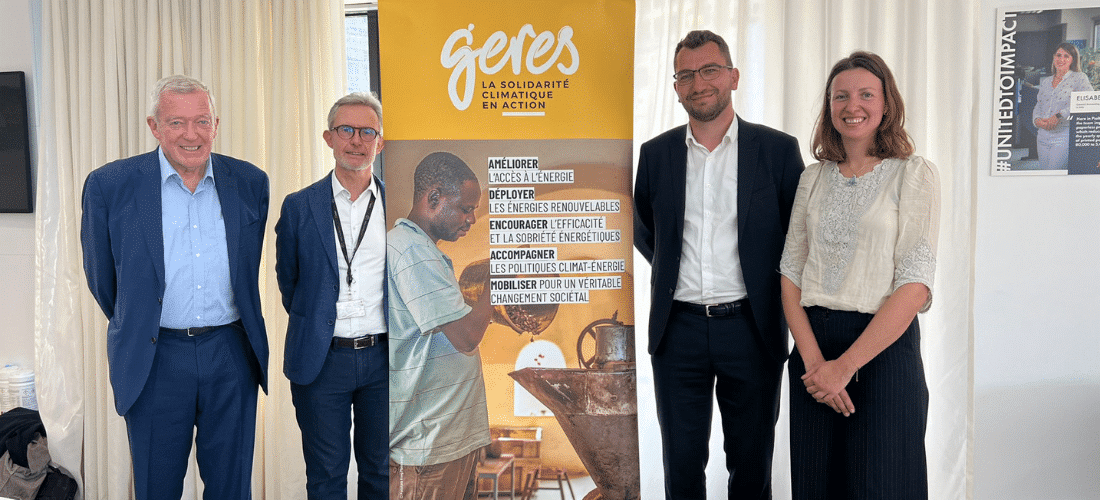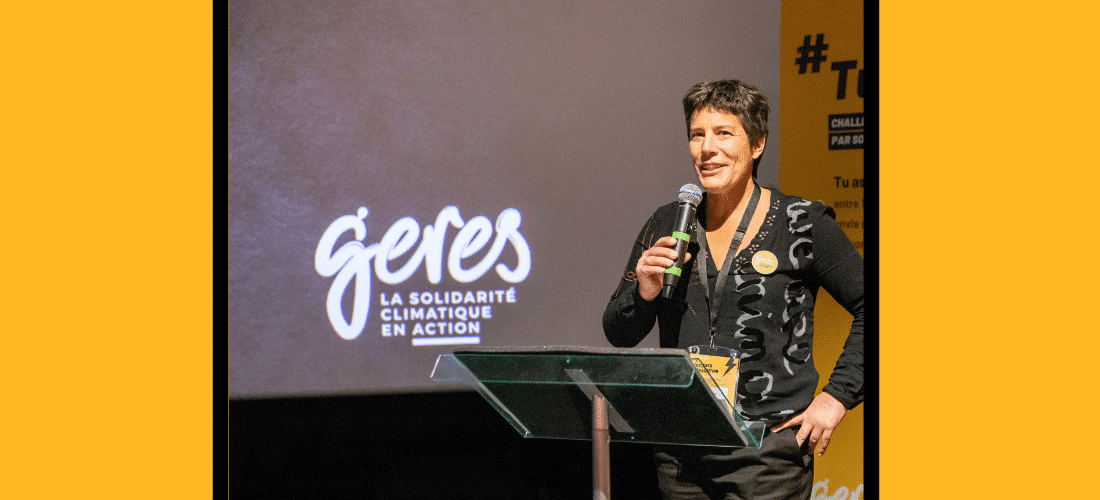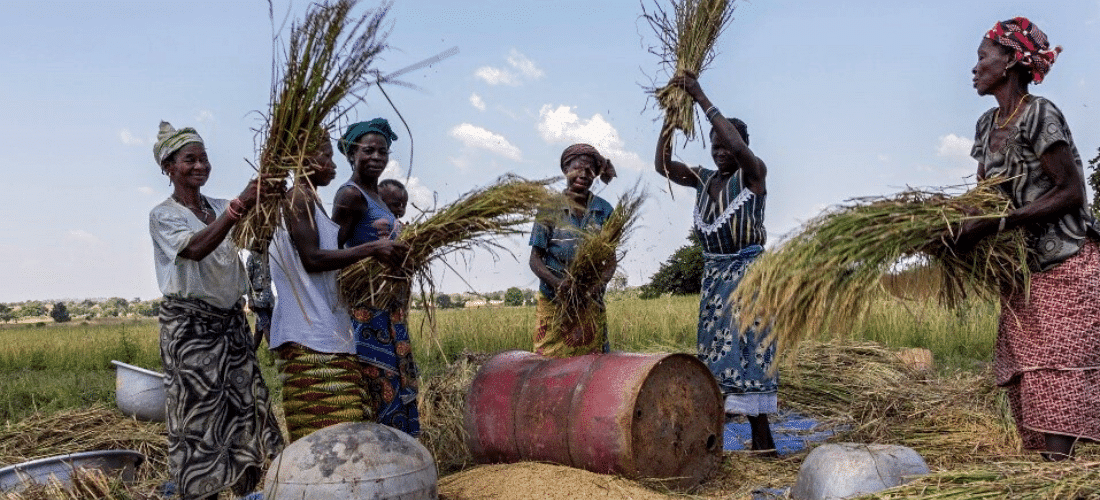Climate-compatibility and our projects: what’s it all about?
Geres takes the issues of climate change adaptation and mitigation into account when implementing projects. But what does that mean in practice? We take a look.
Adaptation means keeping humanity above the social floor, i.e. at an acceptable standard of living, given the consequences of climate change. Mitigation, on the other hand, aims to keep humanity below the ecological ceiling, a threshold above which our impacts on the climate would be irreversible. These concepts lie at the heart of Climate Solidarity, underpinning Geres strategy.
The climate-compatibility approach is designed to ensure that a project really does contribute to climate change adaptation and mitigation.
It comprises two studies:
- 1. Climate proofing. With a view to adapting project activities to climate uncertainties and making sure that they have positive impacts for the beneficiaries in the long term, the study looks at climate trends within the geographical context.
- 2. Impact carbone. In parallel, to ensure that projects make an effective contribution to the mitigation of future climate risks, the direct and indirect impact of project activities on the greenhouse gas emissions responsible for climate change is first analysed and then measured.
The aim of this approach is therefore to raise project teams’ awareness of the causes and consequences of climate change, identify climate issues affecting project activities and develop solutions in response.
Methodology of climate compatibility
- 1) The climate proofing protocol
The protocol helps the organization to understand how future climate trends (temperature, rainfall and extreme events) may impact the project and identify which components of the logical framework may suffer the effects of climate change, as well as how the biophysical and socio-economic effects can be determined and how possible solutions can be identified to adapt the project to environmental changes and risks in the long term.
It comprises five stages:
1. Analysing climate trends;
2. Identifying the areas of exposure related to the project’s activities;
3. Identifying the effects and impacts of the climate on the project’s areas of exposure;
4. Putting forward and designing solutions to improve the project in response to the biophysical and socio-economic effects identified;
5. Creating a monitoring framework for the measures.
Ideally, climate proofing is undertaken right at the start of the project, so that the solutions identified during stage 4 can be adopted.
2) The carbon impact study
This study helps to identify and measure the project’s effects on greenhouse gas emissions. The effects in question may be directly related either to activities carried out as part of the project or to indirect consequences (whether or not foreseen) of the project.
Accordingly, consideration will be given to both the additional greenhouse gas emissions generated by the project and its positive impacts in terms of avoided emissions or carbon permanently removed from the atmosphere.
This study is also conducted in five stages:
1. Examining the project context;
2. Analysing the direct and indirect effects of the project on greenhouse gas emissions;
3. Putting forward and designing solutions to reduce the negative impacts and optimize the positive impacts;
4. Creating a monitoring framework for the indicators serving to measure carbon;
5. Estimating the project’s potential (ex ante) or actual (ex post) quantitative carbon impact.
To find out more, feel free to contact our Geres Expertise team at contact@geres.eu
Geres news

A look back at nine years of collaboration with the Nexans Foundation
On the occasion of the tenth anniversary of the Nexans Foundation, Geres was invited to testify on the last nine years of ...

Laurence Tommasino : “In 2023, our challenge will be to step up our efforts to adapt our operating methods to different geopolitical contexts”
As we start the New Year, it's time to take stock. Laurence Tommasino, Geres executive director, tells us about the highlights for ...

Geres is opening an office in Burkina Faso: interview with Carole Dehu, Geres country representative
It's a first: Geres is moving into Burkina Faso. We find out what's happening from Carole Dehu, Geres country representative. ...
WOULD YOU LIKE TO TAKE ACTION
AND SUPPORT WHAT WE DO?
Tell us who you are and find your means of action.
